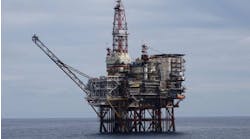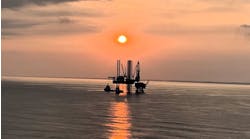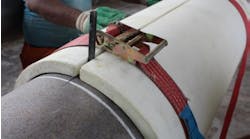Digitalization attracting higher proportion of exploration spend, survey finds
Offshore staff
LONDON – Wood Mackenzie’s 11th annual Exploration Survey suggests continued recovery, based on reported drilling plans and new license awards.
The company sought feedback from 258 senior energy leaders and exploration professionals across a range of issues.
Dr Andrew Latham, vice president exploration at the consultant, said conventional is still regarded as “the primary resource replacement option. And lower costs, both for exploration and development, are key to exploration’s return to value creation.”
Deepwater high-impact plays off Brazil, Guyana, the Gulf of Mexico, and the East Mediterranean continue to attract the most attention.
This year the global exploration budget will total around $40 billion, the survey found, with drilling accounting for around half that figure, and geological and geophysical surveys around 25%.
At present, digitalization constitutes roughly 8% of the total spend, and the proportion will likely rise as new seismic processing techniques, machine learning, and AI play an increasing part in exploration.
“Digitalization offers exploration the possibility of better resolution of the subsurface, better seismic modeling and growing use of automated interpretation,” Dr Latham said, adding that “the survey results back up our expectation that the exploration industry, led by the majors, will spend billions each year on digitalization.”
Efficiency gains following the industry’s overhaul period during the downturn mean that using less to do more is now commonplace.
Around 22% of the survey respondents thought exploration could break even with Brent in the $55-60/bbl range, and a further 18% are comfortable in the $45-$50/bbl range.
This compares with a generally perceived break-even price of around $80/bbl before the oil price crash.
Another factor improving the economics of exploration has been the trend toward reduced project complexity, with explorers sizing up prospects in less challenging basins.
This approach means that drilling times are improving in certain cases by 30%, allowing for faster project development.
Around 36% of the survey respondents said they would invest more in exploration in 2019 with only 13% trimming their budgets. And 38% expected to drill more wells this year.
05/13/2019


